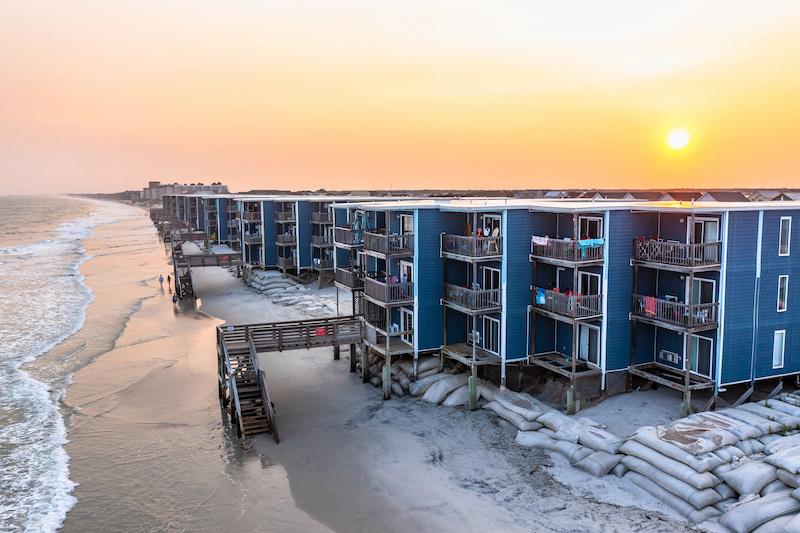How might climate change impact condo standards going forward?
The negative effects of climate change have become more apparent over time. As a result, building standards have shifted to prepare for events such as floods, extreme heat, wildfires, and more, which come with a host of issues on their own. These issues include from deterioration of external cladding, loss of concrete durability, melting asphalt, and termites, and will only get worse as global warming persists. How can building standards, particularly that of condos, adapt to help prevent these negative effects?
Building for future proofing
Future proofing can extend a building’s life span against climate change. The future proofing of buildings aims to maximize the whole-life value in the face of unpredictable, ongoing change through an assessment process. It’s important that buildings not only be flexible and resilient to climate change, they also need to be energy efficient, responsive to technology, and catered to the changing population and social needs of the public.
Take St. Paul’s Hospital in Vancouver, for example: the hospital and health campus has been designed to withstand any flooding caused by rising sea levels in the future. This will not only ensure that the facility is prepared for what might come in the next 30 years, but also that the hospital will still be functional after a flood. Metropolitan cities like Vancouver can be prone to floods, and with global warming continuing to be an issue, it’s best to construct buildings so they combat any risks.
How are condos and apartments affected?
Climate change experts predict an increase in heavy rainfall and storms, which increases the risk of flash flooding and can lead to issues with basements and parking garages. This also results in storm power outages that can be costly, as condos would need to rent a generator on short notice to ensure power for its residents. As well, although modern condos are typically designed to withstand movement from high winds, older units need to be regularly inspected to ensure they are prepared for extremes.
Not only that, some apartments and condos in have recently become too hot to live in due to extreme heat, and future summers are predicted to get hotter still. Several factors can contribute to this, including glass windows, which promote solar heat gain and create heavy energy demand by causing A/C units to continuously run. This means that the chiller units inside these buildings may have to be replaced or repaired more often.
Heat can also negatively affect building materials and any ultraviolet damage can alter the look of cladding, which then increases the risk of expensive repairs. As Dr. Blair Feltmate, professor and head of the Intact Centre on Climate Adaptation at the University of Waterloo states, any condo corporation would be well advised to put measures in place to mitigate and anticipate extreme weather events.
Who’s leading the charge?
The insurance industry has begun to respond as the risk of climate related claims rise. According to Kia Javanmardian, senior partner at McKinsey & Company, executives at insurance companies can and should work in partnership with one another and the public sector to prevent any risks. He states,
“What is the future policy that will help shape how risk is built up? Just a simple example of building codes, where and how to build for resiliency so we don’t keep falling into the same trap, is a massive opportunity for the industry and one that will require cooperation.”
While climate change is only one factor causing premiums to rise, the preventative measures property owners take to mitigate the effects could reduce the number and severity of claims that would go on their loss record. The pressure to address rising insurance premiums may be the driving factor to impose stricter building codes that consider climate change in the future, both the causes and the effects.

